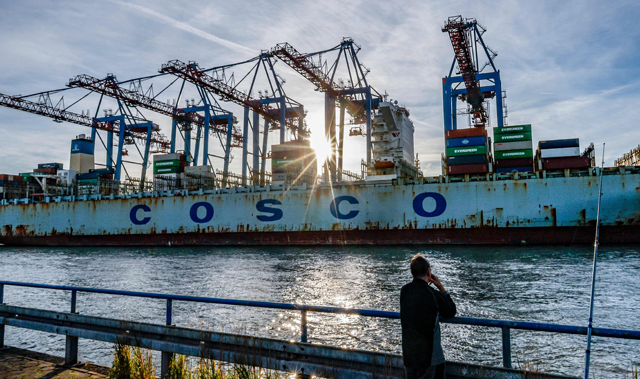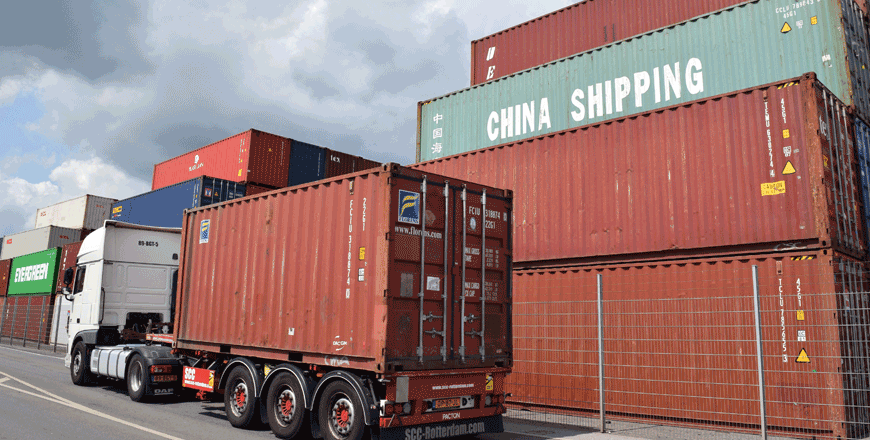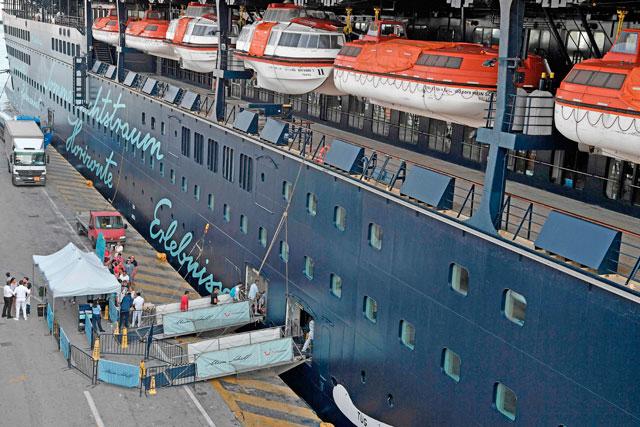You are here
Germany reviews controversial Chinese stake in Hamburg port
By AFP - Apr 12,2023 - Last updated at Apr 12,2023

In this file photo taken on October 26, 2022 the container ship 'COSCO Pride' of China COSCO Shipping Corporation is unloaded at the Tollerort Container Terminal owned by HHLA, in the harbour of Hamburg, northern Germany (AFP photo)
BERLIN — Germany is reassessing whether to allow a Chinese firm to buy a stake in a Hamburg port, the economy ministry said on Wednesday, after the terminal was classed as critical infrastructure.
"Since the conditions have changed, we are examining what impact this will have on the situation," a spokeswoman for the economy ministry said at a press conference, while refusing to speculate on the outcome of the review.
The German government controversially gave the go-ahead in October for state-owned Chinese shipping giant Cosco to buy up to a 24.9 per cent stake in the Tollerort container terminal in Hamburg.
The green light came despite security concerns over the sale of the infrastructure to Chinese investors, with Chancellor Olaf Scholz resisting calls to ban the sale outright.
Cosco initially sought to purchase a larger 35 per cent stake in the port before a compromise agreement was announced.
Germany has been reevaluating its economic relationship with China amid concerns over human rights and the communist country's ties with Russia, as well as the escalation of tensions over Taiwan.
The port was reclassified as critical infrastructure by the Federal Office of Information Security at the "start of 2023", the operator HHLA told AFP in an emailed statement.
The row surrounding the original decision pitted Social Democrat Scholz against his coalition partners, the Greens and the liberal FDP, who said lessons had to be learned from Germany's breakdown in ties with Russia following its invasion of Ukraine.
While Scholz, a former Hamburg mayor, had backed the Cosco deal and stressed the importance of maintaining strong trade ties with China, six ministries wanted to veto the sale at a time of heightened concerns about important infrastructure falling into foreign hands.
In November, Germany blocked the sale of two chip makers to Chinese investors because of security concerns around the key technology.
Germany has also capped investment guarantees for German companies doing business in China, as Europe's largest economy looks to reduce its dependence on Beijing.
Related Articles
PARIS — Germany will limit guarantees for companies doing business in China as it looks to reduce its dependence on Beijing, Economy Ministe
DUISBURG — Duisburg once touted itself as Germany's "China city" due to strong links to the Asian giant, but it is now desperately seeking a
PIRAEUS, Greece — Chinese shipping giant Cosco on Friday said it has ambitious plans for the Greek port of Piraeus, including boosting alrea

















